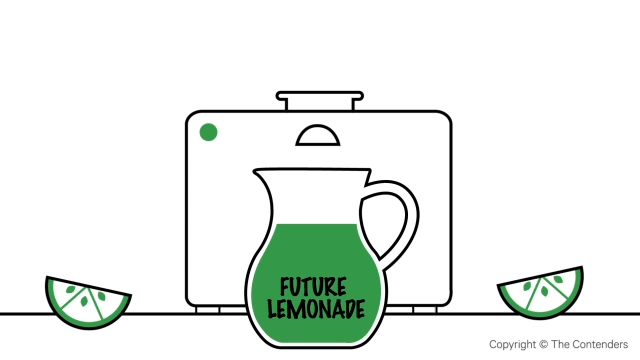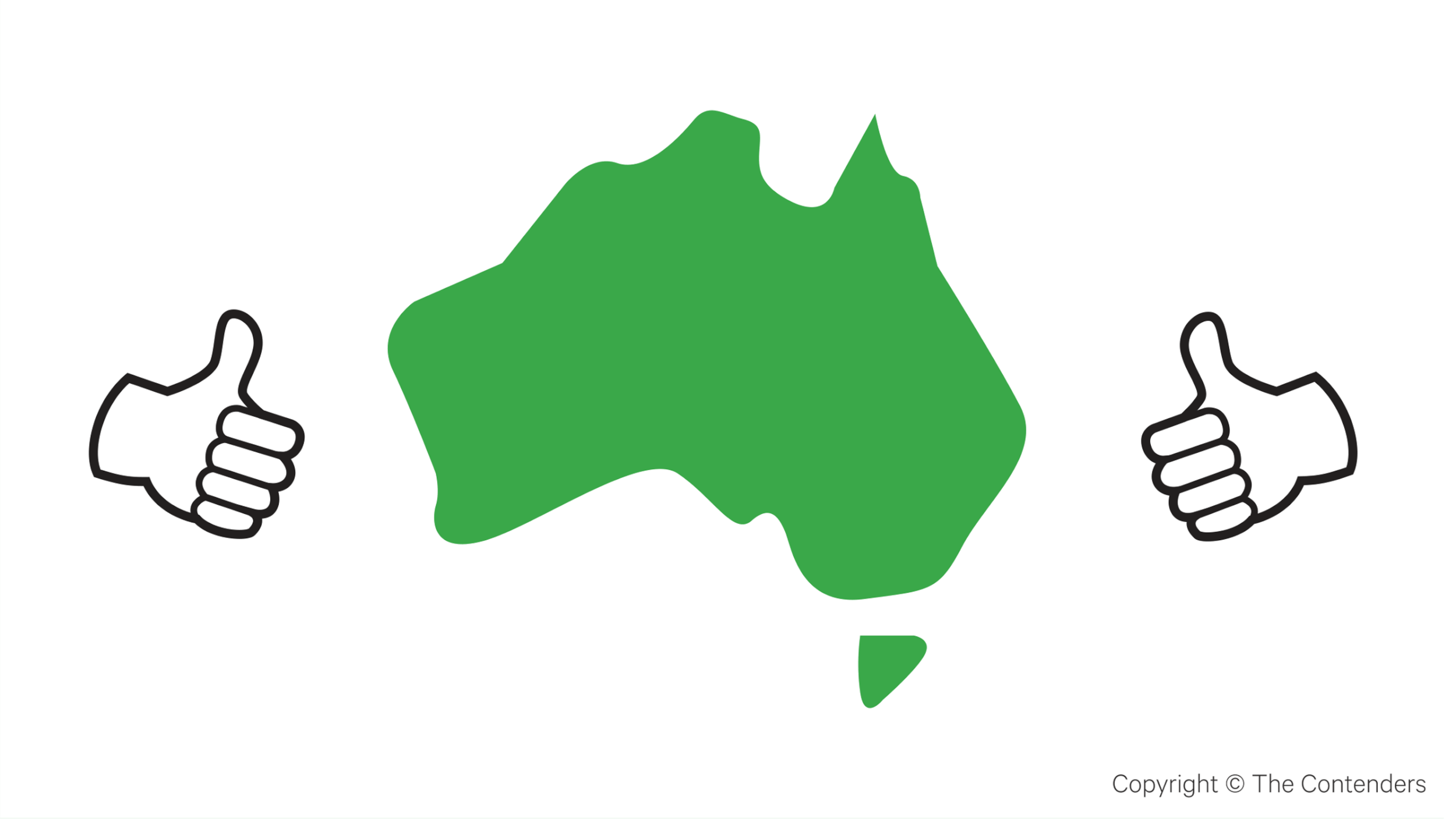From gold to green : how brand Australia can thrive
Where are the codes Donald? We all knew this day would come, didn’t we? Everyone has that dodgy mate who likes to collect ‘mementoes’ along their travels. Is it vanity, childishness, or a maladaptive way to try and hold onto influence like he saw his daddy do? We will never really know, but we can all picture the lead actor from The Apprentice leaning over and saying, ‘Ya know in that box I got the codes, the real nuke codes and some dirt on the Frenchies too.’
While no one is shocked by the behaviour, it is still striking how quickly the world reacts based on what they already believe rather than re-evaluating based on new information. Hot takes sadly are becoming table stakes. We debate the behaviour of one man towards a woman named Amber more than the atrocious decision of a group of mostly men to overturn Roe Vs Wade, in turn setting back the rights of women at least two generations.
These days the best life skill you can have is to keep looking. Ophthalmology calls this ‘visual acuity', where your eyes help your mind process scrambled information and make decisions. If you play any sport your eyes underpin your athletic success. Your gaze leads your mind, leads your body. Widen your gaze and win.
Lemonade, not Lemons
Follow the money. While it’s a cute bit of folksy wisdom, it is also a great piece of investment advice. Follow the wave of where the value is going rather than staying where it is. The money is all pointing towards the certainty of net zero rather than the parlour game of yet another moment of peak oil. We are now all in on the existential bet of our lives. The electron will beat combustion.
While Covid disruptions and inflationary pressures are far from over, we will look back on this time as we did when the old industrial complex finally broke. Not because we all started to use Zoom or learned that our colleagues were people, but because it provided a plot point that could close out a chapter. The Industrial Age really meant a Division of Labour Age. Henry Ford divided labour and life to build the factory and the most powerful economic engine of our time. Tim Berners-Lee less intentionally launched the data era that has led to the Interconnected Age.
The pandemic marked the end of globalisation as a tool for value creation through cost reduction. While FF darling Allan Joyce is still pondering this, loading your luggage with his new mates at ‘outsource co’ out on the apron at Sydney International, I’m not sure he got the memo that where we are heading is expansive rather than reductive. Why? The digital era allows you to hold together vertical chains of value as easily as horizontal ones. It is the age of talent and knowledge, and people choose how to employ it, even your humble baggage handler.
Think about this through the lens of your typical day. It can be a set of horizontal tasks discrete from one another such as the grocery shop and a board meeting or a vertical stack of things to get done that are all interdependent like a report or getting the kids to school on time. In each of these examples, they are all now held together by the not-so-secret tie that binds – the internet and its ability to hold together the data that holds together your life. This instant interdependency is where the new value of the digital era is going to be found.
Data age 3.0?
What is the next unlock in a world of data? The capital flows provide the answer and it's going into three areas: Bio, Fin and Energy.
Bio: we are moving from a world dominated by disease to one of preventative genetics.
With the development of easy-to-say CRISPR which stands for the less easy-to-remember clustered regularly interspaced short palindromic repeats, a new world of genetic science is opening up before our eyes. In 2020 the Nobel Prize was awarded to Jennifer Doudna and Emmanuelle Charpentier for figuring out that the Cas9 enzyme can be guided by programmable RNA to locate specific genetic sequences in any organism. The enzyme then works like a pair of scissors, cutting the DNA’s double helix and allowing for sequences to be deleted, added or replaced. This is changing how we do things from approaching endemic diseases like Malaria to helping build crops that can withstand climate change. Here the USA and China are fighting for leadership. China alone has registered over 2000 patent applications for distinct inventions that involved CRISPR.
Fin: we are moving from a world dominated by centralised institutions to decentralised ledgers.
The world of transactions, contracts, payments and asset registries will be reshaped by decentralised finance or DeFi. DeFi is famous for Cyrpto but it’s what this new form of currency is based on that is important. Blockchain represents a novel way of providing any service by cutting out traditional centralised intermediaries by relying on automated protocols instead.
Anything in the ‘network’ can be transferred automatically (via so-called smart contracts) to create an immutable transaction record without the need for a centralised trusted authority. Here Europe leads the way as home of the world’s reinsurance industry and Swiss and German advanced signalling businesses. The real step change will be whether the world’s defacto currency the USD goes crypto. Jumpin' Joe Biden is thinking so.
Energy: we are moving from a world dominated by petrochemicals to one dominated by electricity.
Electricity already accounts for about 20 per cent of our energy today and will have to rise to 50 per cent by 2050. 75% of the world now has a decarbonisation agenda, and the coronavirus pandemic only accelerated the trend. In 2021 renewable power hit a record 200 gigawatts. While America in the data age was built on the Silicon Chip, China is the leader in the clean energy revolution. Chinese groups are ahead in almost every area of clean tech. China produces more than 70 per cent of all solar photovoltaic panels and a third of its wind power. It is also the biggest battery producer and controls many of the raw materials crucial for clean-tech supply chains, such as cobalt, rare-earth minerals and polysilicon, a key ingredient in solar panels.
Will we ‘luck’ out again?
This new era directly affects 32.7% of Australia's economy. Mining (11.5%), Finance (8.0%) and Health and Education (13.2%) are the biggest sectors of our economy. Where must brand Australia be heading to ensure we are still a lucky country in 2050? Arguably we need to transition from the Big Australia to the Savvy Australia. We can look to our history; as with any brand it is our foundation myth that will write our next chapter.
Australia is interesting as we are a story of what happens when you mix together location, migration and natural resources. Is it our luck (as my Geologist father says ‘Australia has the best rocks’) or is it something more about our ingenuity, openness, lifestyle, low distance to power, and our 'have a crack' character? It’s definitely the latter.
If we can harness these and go vertical rather than participating more horizontally in the areas above, Brand Australia will thrive in the next world era. We can go from providing the rare earths for panels and selling our outback as land to generate power to developing the technology required to electrify our future. We, after all, invented the PERC panel and solar hot water systems in which China now leads the world. Twiggy Forrest is onto something. If we invent it or find it here, we can process it here and add value here.
—
Be better to each other.




